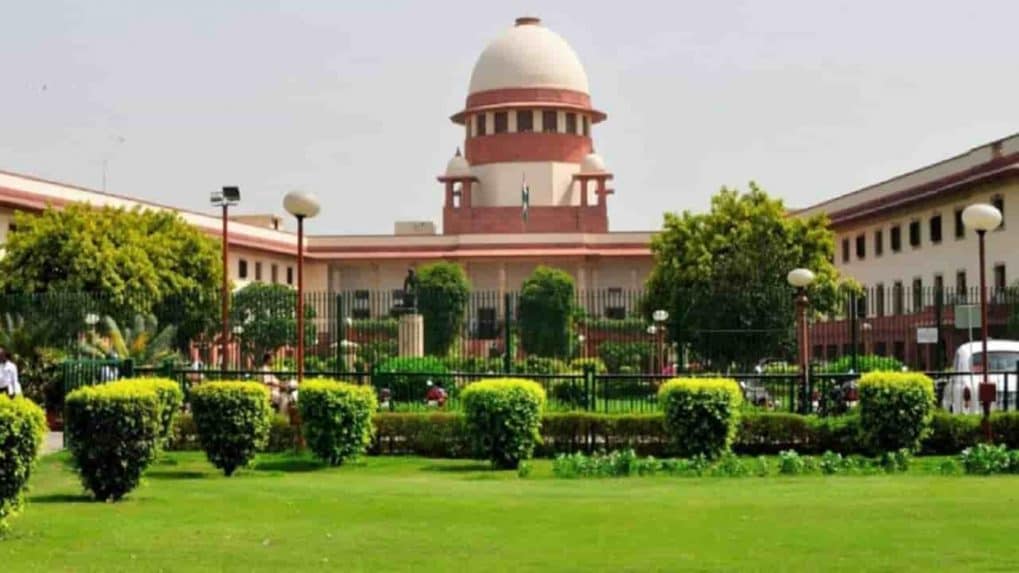Advertising
From Pink Slips to Silent Sidelining: Inside adland’s layoff and anxiety crisis

In a significant development in the ongoing legal battle over the taxability of online gaming, the Centre has argued before the Supreme Court that gaming companies are not mere intermediaries facilitating play between users but are in fact "taxable persons" under the Goods and Services Tax (GST) framework. The Union Government made this assertion in its written rejoinder submissions in the special leave petition against Gameskraft Technologies Pvt Ltd.
Represented by Additional Solicitor General N. Venkataraman, the Directorate General of Goods and Services Tax Intelligence (DGGI) contended that online gaming platforms supply “actionable claims” directly to players and are therefore liable to pay GST as suppliers under Section 2(105) of the CGST Act.
According to the Centre, these companies are at the center of the transaction—creating the gaming platform, facilitating the placing of stakes, regulating gameplay, and receiving all stake monies. Without these platforms, the actionable claims would not exist, the submission noted.
Venkatraman said, "What is being taxed by the Revenue is the supply of actionable claim. The players are supplied with an actionable claim only by the gaming companies. By an invitation to sign up on the platform, by devising a mechanism to place stakes on the outcome of each game, by conducting the game as per the rules and regulations set by them, by receiving the stakes and regulating how they are to be handled, the online gaming companies are at the centre of the entire transaction."
The government argued that the gaming companies cannot escape GST liability by invoking what is referred to as the “two-contract theory”—one contract between players and another between the player and the platform. Since players neither know their opponents nor choose them, and pay their stake amounts solely to the platform, the Centre maintained that the companies are the only possible suppliers of actionable claims.
The Revenue also clarified that Section 9(5) of the CGST Act—which permits the government to designate electronic commerce operators as deemed suppliers—does not apply in this case. That provision is relevant only when a digital platform facilitates a transaction between two other parties, such as Swiggy or Zomato mediating between restaurants and customers. In the case of online gaming, the platform itself is the supplier and recipient of the entire consideration.
In addressing the second canon of taxation, the Centre asserted that actionable claims arising from betting and gambling qualify as goods under Section 2(52) of the CGST Act. For the purpose of taxation, the period under dispute has been bifurcated into two: July 1, 2017 to January 24, 2018, and January 25, 2018 to September 30, 2023. During the first period, a 9% GST was applicable under the residuary Entry 453 of Notification 01/2017. For the second period, the government relied on Entry 229 introduced via Notification 06/2018, which imposed a 14% GST rate for the supply of actionable claims in betting and gambling.
Responding to the argument that actionable claims lack a tariff entry in the Customs Tariff Act (CTA) and therefore cannot be taxed, the Centre countered that the absence of a Harmonized System of Nomenclature (HSN) code does not affect the validity of the tax levy. It cited Circular 06/06/2017 which clarified that the expression “any chapter” could be used where no specific HSN exists, as is the case with lottery tickets—a form of actionable claim already taxed.
The Centre further rejected the classification of gaming services under the services rate Notification 11/2017. It maintained that any attempt to classify actionable claims as services goes against the clear statutory position that actionable claims are “goods.” Even if there are overlaps in service codes, such as 999692 which covers online gambling services, the overarching statutory definition under the CGST Act takes precedence. Actionable claims associated with betting and gambling remain within the ambit of goods, not services.
Importantly, the Centre also clarified that not all online gaming falls under this category. Platforms that simply offer access to casual or subscription-based games without offering betting or gambling options may still fall under the service classification. However, once stakes are placed and an actionable claim is offered based on the uncertain outcome of a game, the supply transforms into a taxable supply of goods.
Concluding its submission, the Revenue asserted that all the necessary criteria for a valid GST levy are met: there is a taxable event (supply of actionable claims), a taxable person (the gaming company), and a prescribed tax rate (either 9% or 14% depending on the period). Therefore, the Centre urged the Supreme Court to uphold its position and dismiss the contentions raised by Gameskraft and other online gaming firms.
From purpose-driven work and narrative-rich brand films to AI-enabled ideas and creator-led collaborations, the awards reflect the full spectrum of modern creativity.
Read MoreLooking ahead to the close of 2025 and into 2026, Sorrell sees technology platforms as the clear winners. He described them as “nation states in their own right”, with market capitalisations that exceed the GDPs of many countries.